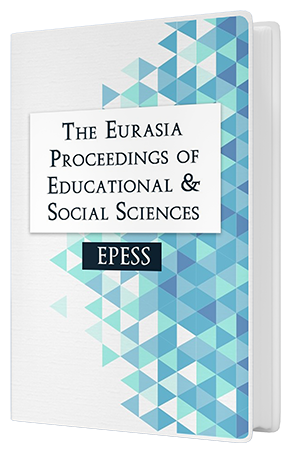HIGHER EDUCATION OF INDIA: INNOVATIONS AND CHALLENGES
Keywords:
GER, employability, higher education, higher learning institution, demographic dividend, social capital, curriculumAbstract
Education plays a pivotal role in the development of the society and decides the direction in which it has to develop. It has been the salient driver for the achievement of various societal milestones. Since development and advancement is order of the day, education has caught the limelight and turned to be paramount significance. In the present paper, an attempt is being made to throw some light on the current status of higher education, Gross enrolment ratio, state of employability of the output of higher learning institutions. Providing quality education and producing employable output has been a major challenge faced by institutions of higher education. We survive in a society where education is base to go up in the ladder socially, politically, economically etc, in the society. The paper further highlights the innovativeness being developed, persued and followed in the in the wake of changing dimensions of education globally. Academicians and administrators have to think on serious initiatives to be followed to bring about desired changes. The curriculum and delivery mechanism has to be restructured and updated from time to time to meet the expectations of the society. Though there is a visible growth in terms of increase in number of higher learning institutions i.e. 523 universities, deemed universities and institutions with national importance are functioning in India, but not even a single higher learning institution from India figured in the top 200 institutions in the world, this poses serious question on the education system being followed in the country which can only be answered by adopting innovative changes in higher learning institution. The concerted efforts so initiated may bring desired quality results from the sector. Thus the present paper makes an effort to critically examine the present status of higher education system in the country and offer measures to be adopted in the days to come to make the sector more vibrant and relevant and more societal oriented. Education ultimately should enable the society to attain and achieve the desired changes and enjoy the demographic dividend. Further it should contribute visibly in the development of productive social capital.Downloads
Published
Issue
Section
License
Copyright (c) 2015 The Eurasia Proceedings of Educational and Social Sciences

This work is licensed under a Creative Commons Attribution-NonCommercial-ShareAlike 4.0 International License.
The articles may be used for research, teaching, and private study purposes. Any substantial or systematic reproduction, redistribution, reselling, loan, sub-licensing, systematic supply, or distribution in any form to anyone is expressly forbidden. Authors alone are responsible for the contents of their articles. The journal owns the copyright of the articles. The publisher shall not be liable for any loss, actions, claims, proceedings, demand, or costs or damages whatsoever or howsoever caused arising directly or indirectly in connection with or arising out of the use of the research material. All authors are requested to disclose any actual or potential conflict of interest including any financial, personal or other relationships with other people or organizations regarding the submitted work.




